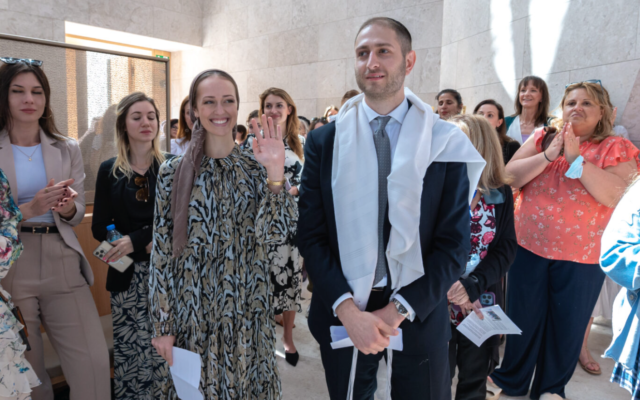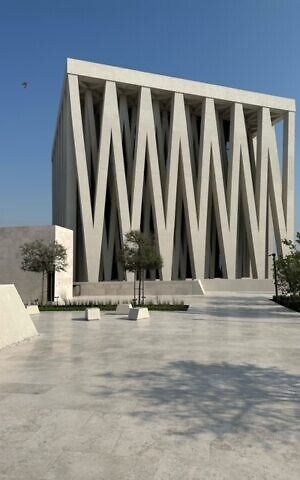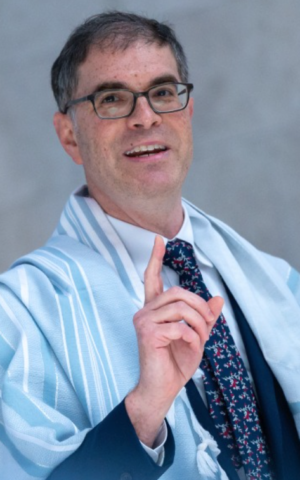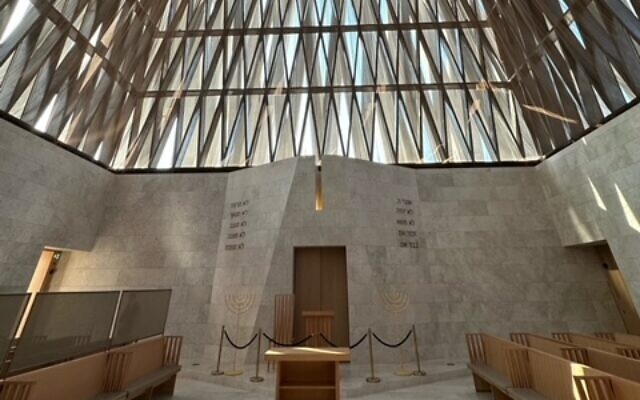Abu Dhabi Welcomes First Synagogue in 100 Years
The United Arab Emirates builds new synagogue as part of multi-faith complex.
For the first time in nearly a century, the Jewish community in the United Arab Emirates is preparing to celebrate Passover in a new synagogue. The beautiful new synagogue complex, which includes a mikvah, is part of multi-faith grouping of buildings, built by the UAE government, that also contains a new Roman Catholic Church and a Muslim mosque.
The synagogue replaces a make-shift synagogue in Ross Kriel’s living room. The South African native serves as president of the Jewish Council of the Emirates that represents several hundred Jewish residents. Kriel, a South African who moved to Dubai, in the UAE 10 years ago, is enthusiastic about the progress the Jewish community has made in the last decade.
“We’ve come from my living room to here in about 10 years, it’s amazing. And now look at this extraordinary structure. It’s a monument obviously to tolerance but it’s a vision of our future. The Jewish people need to completely reimagine our place in the region.”

The country has had a chief rabbi, Yehuda Sarna, who was a part-time leader of the community. His full-time job was as Jewish chaplain at New York University and the executive director of the Bronfman Center for Jewish Life. He hailed what he has described as the “emergence of the first new Jewish community in the Arab world in centuries.”
“We have succeeded in creating meaningful points of convergence in temporary spaces,” he told those attending the synagogue’s dedication last month. “But now, we have a synagogue, the first purpose-built synagogue in the region in almost a century. Our journeys are all intersecting here. This is the point where we can gather the sparks of light, where we can weave different threads together.”
The synagogue is named for Moses Ben Maimon, the famous 12th century Jewish rabbi and codifier of Jewish law, more commonly known as Maimonides. It’s an elegant white stone cube sheathed in a series of V-shaped columns that soar a hundred feet.

Among the first tourists to visit the building was Rosthema Kastin, an Atlanta designer with her own firm here. On a trip to Abu Dhabi earlier this month, she found the synagogue and its companion buildings an inspiring space.
“Each and every one of these buildings is beautiful in its simplicity. They offer a welcoming embrace to whoever enters them and create a sense of calm and wellbeing.”
Kastin was told that the building exterior symbolizes the palm fronds used in the temporary shelters that are constructed as part of the holiday of Sukkot. Inside, she found a metal structure suspended from the central skylight that filtered light.
“The iron grid used in the upper part of the ceiling inside has an opening in the center. It is reminiscent of a roof on a sukkah, which is traditionally loosely constructed of branches. There’s a very simple bimah and an ark to hold the only Torah dedicated to an Arab sheik, the ruler of Abu Dhabi, who gave it to the congregation.”
According to the prominent Ghanian-British architect, Sir David Adjaye, who designed the structure, there is also a spiritual dimension to the building’s design.
“The columns on each side of the building have seven points that touch the ground and eight points that touch the soffit, the roof overhang – with seven being a representative symbol of man, and eight representing G-d above.”

The synagogue is more than a spiritual symbol. It represents an acceleration of ties between the UAE, and the Jewish world. They have expanded rapidly as a result of the Abrahamic Accords, which were signed in 2020. The UAE has exchanged ambassadors with Israel and trade between the two nations has increased to $2 billion a year. There is now an office of the American Jewish Committee in the UAE.
Earlier this month the Anti-Defamation League, in partnership with the government, dedicated the Manara Center, an educational project in Abu Dhabi to counter religious extremism in the Middle East.
The chairman of the Manara Center, Dr. Ali al Nuami, who is head of Hedayah, the UAE’s leading institution in the fight to counter violent extremism, described the new partnership as a way to encourage the importance of creating new values in the next generation in the Arab world.
“We want a future where everyone is respected, regardless of religion, race or ethnicity. Our region has suffered a lot throughout the decades and the root cause has always been extremism.”




comments